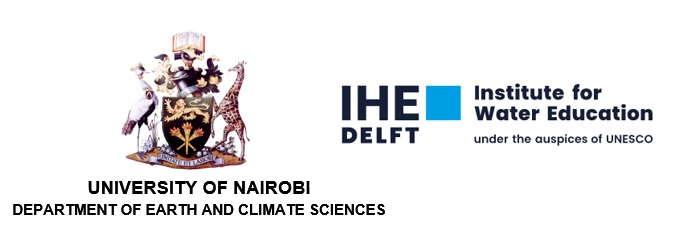The University of Nairobi, in partnership with the IHE-Delft as the project lead, and other collaborators (Kenya Water Institute – KEWI; Kenya Marine and Fisheries Research Institute – KMFRI), is implementing a project entitled “GroundWater SuStainable and Equitable development uNder Constraints of Ecosystem conservation and saltwater intrusion prevention in large deltas (abbreviated GWS-SENCE). The main aim of the project is to promote sustainable and equitable groundwater resources development through a trans- and interdisciplinary approach involving applied research, joint learning, dialogue and capacity strengthening. More broadly, the project is being carried out in three study areas that cover the different target regions of DUPC3, with different socioeconomic and hydroclimatic conditions: i) the Niger delta (Rivers State) with tropical monsoon climate, large urban areas and rural populations with poor access to water, ii) the hot desert Nile delta (Sharkia governorate), with farmers trying to cope with limited access to water, and iii) the tropical savannah Tana delta (Lamu area) with increasing water conflicts between communities and business developers. This project is funded under the collaborative program DUPC3 between the Ministry of Foreign Affairs of the Netherlands and IHE Delft, and the University of Nairobi is the lead partner in Kenya. It also seeks to promote open and inclusive dialogue among and between water stakeholders to protect and optimise the use of groundwater resources and dependent ecosystems (and services) within a vulnerable context of growing water demand, rising sea levels and the prevalence of droughts.
The project seeks to recruit two PhD students in (1) Hydrogeology and (2) Environmental Geoscience to carry out groundwater research in Lamu County, Kenya.

